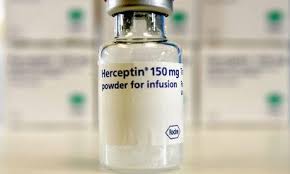Samsung Bioepis Herceptin biosimilar approved in EU

Samsung Bioepis has received the first European approval for a cheaper biosimilar of Roche’s big selling breast cancer drug, Herceptin.
Meanwhile, India’s Biocon seems to have resolved manufacturing issues that were delaying its copycat of the blockbuster cancer drug.
Herceptin (trastuzumab) has been off-patent in Europe for around three years, but until now it has faced no competitors in the EU because of the challenges of making biosimilars – near-copies of biological drugs that must be grown in living cells.
But Samsung Bioepis’ biosimilar, branded as Ontruzant, is now approved in the same uses as Herceptin in early breast cancer, metastatic breast cancer and metastatic gastric cancer.
It will be marketed in all 28 European member states, plus Norway, Iceland and Liechtenstein, by Merck, Sharp and Dohme (MSD), known as Merck & Co in the US.
A joint venture between Samsung and Biogen, the firm is one of several companies that are developing cheaper competitors to Herceptin, which generates sales approaching $7 billion worldwide.
This is the fourth biosimilar developed and approved in Europe by Samsung Bioepis – also approved in the EU are biosimilars of Amgen/Pfizer’s Enbrel, MSD’s Remicade, and AbbVie’s Humira (adalimumab) for various inflammatory diseases including rheumatoid arthritis.
Mylan plant cleared by FDA
Amgen filed its Herceptin biosimilar with the European Medicines Agency in March, and Mylan and Biocon filed their contender with the EMA ahead of the others in August last year.
But Mylan and India’s Biocon hit trouble with regulators on both sides of the Atlantic because of ongoing concerns over manufacturing issues at a factory in Bangalore.
The FDA rejected Mylan and Biocon’s Herceptin biosimilar because of the issues and the companies withdrew the European filing in August this year.
But in a brief note Biocon said that an FDA inspection team had said the issues had been resolved and given the plant the all-clear.
The plant also makes biosimilars of Amgen’s long-lasting white blood cell booster Neulasta (pegfilgrastim), and Sanofi’s Lantus (insulin glargine).











